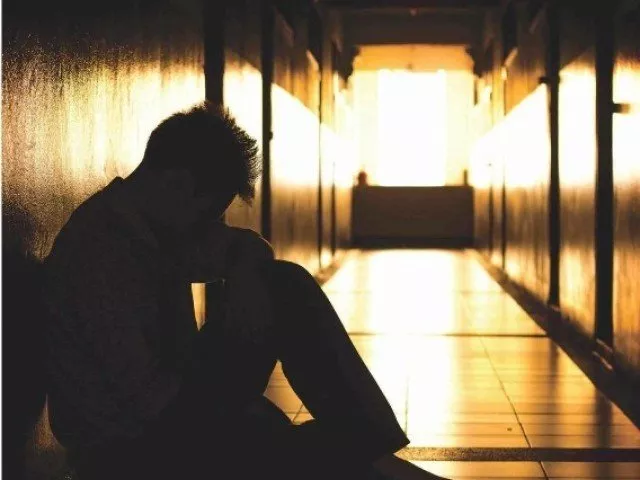Lockdown, students and a brewing mental health crisis
With routine life disrupted, minimal social engagement and facing abuse, students are struggling
KARACHI: With the Covid-19 outbreak, Rida’s* family has been mulling a getaway to their village. But though she yearns to accompany them, she has little option but to remain in Karachi – a depressing thought.The Institute of Business Administration (IBA), where she studies, has started online classes with educational institutes closed during the lockdown. “In my village, there’s no internet. How will I study there?” she questioned.
It’s not just IBA that has moved to online learning. Most universities in the city, even public ones, have initiated online classes.
“But internet isn’t readily available in many areas,” pointed out University of Karachi student Waqas, adding that access was near-impossible in remote areas.
According to him, the move has put most students in a situation they can’t handle. “It’s mentally exhausting. It also lays bare the digital divide in Pakistan.”
The bane of online learning
His words resonated with Rida, who is now spending between Rs2,500 and Rs3,000 for internet services out of her own pocket. With her siblings married and ailing parents, she cannot solely rely on her family to financially support her.
Online classes are also more demanding in terms of time, said Bisma*, one of Rida’s classmates. “It’s just not the same as on-campus learning. At home, your energy level and concentration span are reduced and time management is challenging, making it hard to perform well.”
She added that it was difficult and exhausting to get used to an entirely new mode of learning.
Rida added that teachers had been scheduling classes at their own convenience, with little regard for students. “They don’t understand I missed class due to load-shedding,” she said. “They need to be more accommodating.”
For many students, their teachers’ “inability to understand the predicament” has amplified their stress.
But as Rida observed, “The transition to online learning was too fast for teachers and students alike. Teachers are also struggling to navigate this newfound territory.”
Families pose another problem. “They need to understand I’m not on a break from studying,” she rued, adding that juggling studies and family demands was more stressful by the day.
“Students today face uncertainty about their studies and careers, and parents need to reassure them,” said IBA wellness counsellor Samrah Humayun, also calling for teachers to acknowledge that the transition to online learning was too fast. “They need to understand that students may not be able to meet all their expectations.”
Echoing this, psychologist Dr Majid Ali Abidi stressed that both teachers and parents needed to avoid scolding and public shaming. “This will only add to students’ mental suffering. Teachers particularly must be cognisant of the situation and not burden them with assignments and homework.”
An uncertain future
According to Dr Abidi, uncertainty about studies, careers and job searches amid the pandemic has given rise to anxiety, fear and depression among students.
“A rise has been observed in youngsters facing mental health conditions over the past few days,” he stated, explaining that most of them were stressed due to exam anxiety and career delays.
Rida, who says most of her coursework involves practical learning, is questioning the worth of her degree after transitioning to online learning.
“I’m clueless about my future. The situation is getting worse by the day and they might close down everything again,” she said helplessly, adding she was unable to sleep due to the looming uncertainty. “We can’t go out and landing a job now will be even tougher. Time is running out and so are my savings, but everything else has come to a halt.”
The magnitude of the problem is evident with more and more students, complaining of anxiety and depression, approaching Humayun.
“Their life has been disrupted, there is minimal social engagement and some are even facing abuse with no escape” she said. Acknowledging that mental health concerns were normally more prevalent among students too, she said the current scenario had exacerbated them.
This resonated with Bisma, who said that attending university was not just about studying. “I would socialise with my friends too,” she said, adding that being stuck at home was taking a toll on her mental and emotional wellbeing.
According to Humayun, people are particularly finding it hard to cope with the pandemic because of its unprecedented nature.
“The last time such a situation arose was in 1817, when the Spanish flu struck, and there is no research about how it impacted people’s mental health,” she noted.
Finding a way out
But there are ways to seek respite.
Clinical psychologist Dr Sadia says the first step towards battling the pandemic is accepting that it exists. “We then need to adopt positive thinking,” she added, also recommending spending more quality time with family. “We now have an opportunity to strengthen our bond with our families. We need to interact more with them and engage in healthy and relaxing activities with them.”
Meanwhile, Dr Abidi suggested a healthy routine, with physical activity, a good diet and avoiding traumatic news.
Moreover, Humayun calls for policy-making in this regard.
“At the moment, we are lagging far behind. We need to have policies at every level – societal, governmental and institutional,” she stressed, adding that programmes for mental wellbeing needed to be introduced at universities and companies as well.
She also emphasised the need for counselling, but while students at some universities have access to this, many, like Waqas, find themselves at a disadvantage.
“The university should take measures to provide counselling to students so that at least we are heard,” he said.
But the purpose goes beyond that.
According to Humayun, such initiatives will help students learn coping strategies and prepare them better for the future.
*NAMES CHANGED TO PROTECT PRIVACY


COMMENTS
Comments are moderated and generally will be posted if they are on-topic and not abusive.
For more information, please see our Comments FAQ